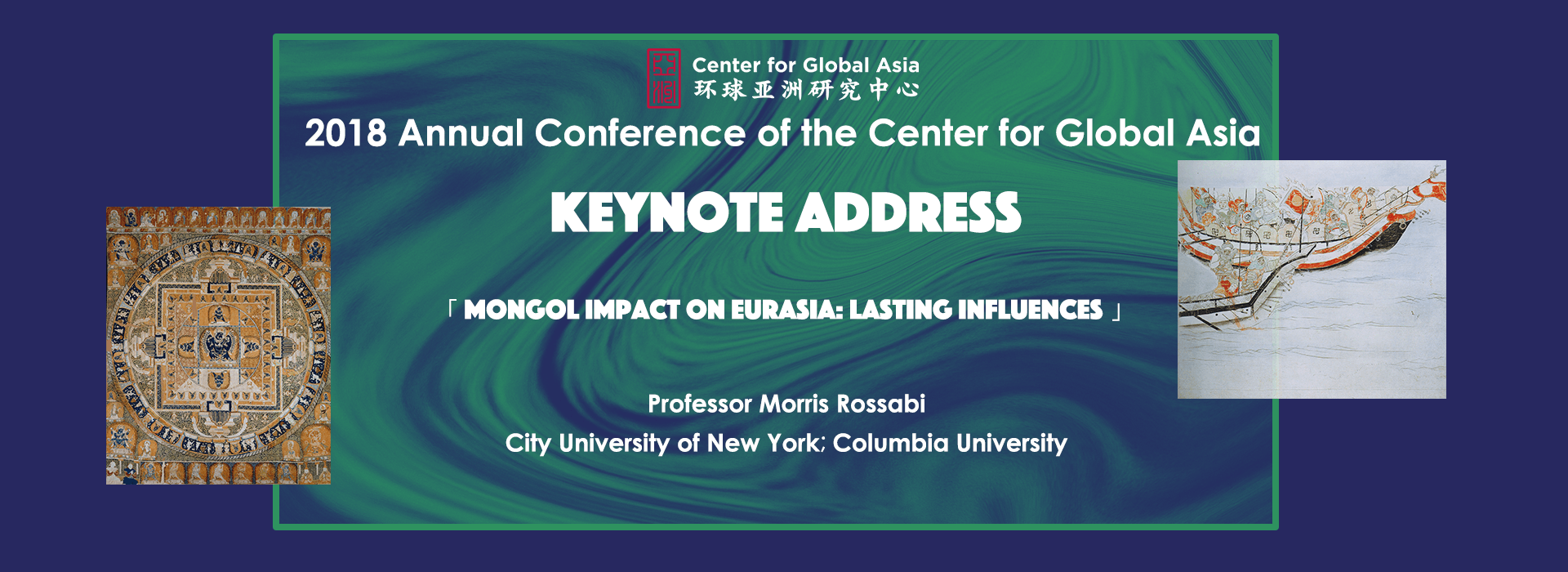CONTACT US
Email: shanghai.cga@nyu.edu
Phone Number: +86 (21) 20595043
WeChat: NYUShanghaiCGA
Address:
Room W822, 567 West Yangsi Road,
Pudong New Area, Shanghai, China

© 2024 All Rights Reserved

Venue: Auditorium, 1555 Century Avenue, NYU Shanghai
Date: Monday, August 20, 2018
Time: 17:30 to 19:00 CST
Starting in the 1980s, specialists challenged the conventional wisdom about the Mongol Empire’s almost entirely destructive influence on global history. They asserted that that Mongols promoted vital economic, social, and cultural exchanges among civilizations. Chinggis Khan, Khubilai Khan, and other rulers supported trade, adopted policies of toleration toward foreign religions, and served as patrons of the arts, architecture, and theater. Exhibitions at the Metropolitan Museum of Art and the Los Angeles County Museum of Art confirmed that the Mongol era witnessed extraordinary developments in painting, ceramics, manuscript illustration, and textiles. To be sure, specialists did not ignore the destruction and killings that the Mongols engendered.
This reevaluation has prompted both sophisticated and less well-informed analyses of the Mongols’ legacy in Eurasian history. The Ming dynasty, the Mongols’ successor in China, adopted some of the principles of Mongol military organization and tactics and were exposed to Tibetan Buddhism and Persian astronomy and medicine. The Mongols introduced agricultural techniques, porcelain, and artistic motifs to the Middle East, and supported historical writing, and Sufism. Europeans became aware, via the Mongols, of Asian products, as well as technological, scientific, and philosophical innovations in the Middle East and were motivated to find sea routes to South and East Asia. Less well-informed popularizers have gone to extremes, portraying Chinggis Khan as a democrat and a believer in religious toleration and women’s rights.
This illustrated lecture assesses the lasting impact of the Mongols in promoting contacts between East and West Eurasia. Introduction and moderation of the Q&A by Joanna Waley-Cohen, Provost and Affiliated Professor of History, NYU Shanghai; Julius Silver Professor of History, NYU.
Speaker
Author or Editor of twenty-six books, including Khubilai Khan, Modern Mongolia, Voyager from Xanadu, and A History of China, Morris Rossabi (Ph.D, Columbia) is Distinguished Professor of History at the City University of New York and Adjunct Professor of History at Columbia University. Born in Egypt, he conducts research in East Asian and Middle Eastern languages and has written four chapters in the definitive Cambridge History of China. He has collaborated on Chinese art exhibitions at the Metropolitan Museum of Art, the Asian Art Museum, and the Los Angeles County Museum of Art. Awarded an honorary doctorate from the National University of Mongolia, he has written a Global History of the period from 1000 to 1450.
To our visitors:
• RSVP may be required for this event. Please check event details
• Visitors will need to present a photo ID at the entrance
• There is no public parking on campus
• Entrance only through the South Lobby (1555 Century Avenue)
• Taxi card
• Metro: Century Avenue Station, Metro Lines 2/4/6/9 Exit 6 in location B
• Bus: Century Avenue at Pudian Road, Bus Lines 169/987
Email: shanghai.cga@nyu.edu
Phone Number: +86 (21) 20595043
WeChat: NYUShanghaiCGA
Address:
Room W822, 567 West Yangsi Road,
Pudong New Area, Shanghai, China

© 2024 All Rights Reserved